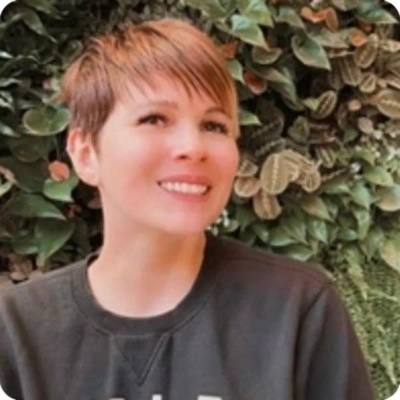14 Advice for New Digital Marketing Freelancers Starting Out
Digital marketing freelancing offers exciting opportunities, but success requires strategic planning and expert guidance. This article presents essential advice for new digital marketing freelancers, drawing insights from seasoned professionals in the field. From specializing in niche areas to building sustainable systems, these tips will help newcomers navigate the competitive landscape and thrive in their freelance careers.
- Specialize and Track Measurable Results
- Build Systems for Sustainable Growth
- Value Your Expertise with Higher Rates
- Create Structure in Freelance Freedom
- Sell Outcomes Instead of Skills
- Showcase Your Work Through Case Studies
- Focus on High-Value Clients
- Proactively Create Work for Clients
- Charge for Strategy Not Just Execution
- Cultivate Long-Term Client Relationships
- Leverage Networking for Business Growth
- Repurpose Content Across Multiple Platforms
- Invest in Professional Accounting Services
- Master Copywriting for Marketing Success
Specialize and Track Measurable Results
I wish I had been told earlier to stop offering everything and instead prove results with numbers. In my first year, I took on anything from writing blog posts to SEO audits because I thought casting a wide net would bring more clients. What actually worked was showing outcomes people could measure, like cutting CAC by 15 percent with tighter targeting in Google Ads or lifting conversions 2X by fixing broken landing pages. Clear numbers built trust faster than a list of services ever did.
So if I could go back, I'd tell myself to specialize sooner and track everything. Running ads that get clicks is fine, but ads where CPC drops while leads grow is what matters. That only happens when you measure every step, test without bias, and tune out vanity metrics. Because people don't care if impressions look good on a report, they care about calls and form fills. Once I focused on results tied back to revenue, better clients came in and stayed longer.
I also made the mistake of lowering prices to get contracts. That set the wrong expectations and spread me too thin. Things changed when I charged a fair rate and focused on reducing waste. Because if you save a client $1,000 a month by trimming bad ad spend, your fee feels like an investment, not an expense. That made the work more sustainable and the relationships stronger.
So the advice I'd give my past self is simple: Pick the channels you can actually master, track every result in numbers that matter, and never race to the bottom on price. Proof of value stacks up over time, and it compounds faster than trying to do everything for everyone.

Build Systems for Sustainable Growth
When I first started freelancing in digital marketing, I wish someone had told me: don't just chase projects, build systems.
In the beginning, I spent a lot of time hustling for one-off jobs on platforms like Bark and Upwork, delivering good work but always starting from scratch with the next client. Over time, I realized the real growth came from creating repeatable systems — whether it was outreach frameworks for link building, reporting templates, or even a structured onboarding process.
If I could advise my past self, I'd say: treat yourself like a business from day one. Document your processes, build a personal brand (my agency today, Peter Ngo Digital, grew out of this), and focus on long-term client relationships rather than short wins. That mindset shift makes freelancing more sustainable, less stressful, and positions you for scaling when the time is right.

Value Your Expertise with Higher Rates
Charge more.
My first experience freelancing was after 2 years of industry experience at an entry-level job making $15/hr. When I started freelancing, I was told I could charge a lot more because the projects come inconsistently, they're not paying benefits, and for a million other reasons. I could only get myself at the time to charge $25/hr at the time though.
I'd tell myself today to charge a recurring retainer, a total project fee, or a much higher hourly rate. My mentor at the time was charging $125/hr for the freelance work he did on the side, and today when I'm charging for hourly work I'm charing $250/hr and will probably bump that up again soon. I'm obviously way more experience a decade into it now and have a lot more value to bring to the table, but the principle remains. Most freelancers aren't charging enough, especially if you have industry experience and you're just stepping into the freelancing world.

Create Structure in Freelance Freedom
If I could give my past self one piece of advice, it would be this: freedom is amazing, but structure is essential.
When I first struck out on my own, I loved the independence. No boss, no clock to punch, no one telling me what to do. But here's what I didn't realize at the time: working for someone else forces you into a structure. Deadlines, meetings, accountability... those things can feel restrictive, but they also keep you focused and moving forward.
When you go out on your own, that structure disappears. And for people like me, entrepreneurial and full of ideas but not always great at follow-through, that can be dangerous. It's all too easy to chase shiny objects, stay busy without making progress, or just lose focus.
The trade-off of freedom is that you lose structure. To make it work, you have to create new forms of accountability for yourself.
For me, one of the most powerful tools has been body-doubling sessions, basically virtual co-working with others. You log on, state your intention for the session, and then work alongside others. It sounds simple, but it's incredibly effective. It keeps me accountable and gives me the "external pressure" that used to come from a boss. There are several online services that provide this. And you can mix this with in-person co-working, but I've found that having to state your intention to someone else at the beginning of a work session (or "pomodoro") is invaluable, while simply showing up and working in a co-working space on its own doesn't do much for me.
So I've built this into my daily routine (when I don't have sales calls or meetings scheduled...):
- 10 a.m.-12 p.m. - "Work on the business" session. I pick the single most important task that will have the biggest impact on my success.
- 2 p.m.-4 p.m. - Open session. The only KPI here is showing up.
There's a saying, often attributed to Woody Allen: "Eighty percent of success is showing up." I'd take it further. It's not just about showing up, but also being intentional about what you do once you're there. I've found that if I show up for those two 2-hour sessions, everything else pretty well falls into place.
So my advice to my younger self, and to anyone starting out, is this: enjoy the freedom, but treat structure as non-negotiable. Build systems that force you to focus on what really matters. That's how you turn ideas into real, sustainable success.

Sell Outcomes Instead of Skills
The advice I wish I had received early on is: don't sell your skills, sell outcomes.
When I first started freelancing, I pitched myself as "someone who can do SEO, ads, or content." Clients heard that and immediately thought in terms of hours and costs. It kept me stuck in low-paying, transactional work.
What I know now is that businesses don't care about "SEO audits" or "blog posts"; they care about more calls, more leads, more revenue. The moment I shifted my language from tasks to results ("I'll help you double your inbound calls in 90 days"), everything changed: higher rates, better clients, and longer-term partnerships.
So my advice to my past self (and any new freelancer) is: tie your work to business outcomes. It's the difference between being seen as an expense versus being valued as an investment.

Showcase Your Work Through Case Studies
I am now the Marketing Director at 3WH, but I started out freelancing in digital marketing. At first (like most freelancers), I was bidding on every job board, and it mostly went nowhere. Things changed when I treated my own site as my first client by putting up a simple landing page, running a small search test for a fortnight, and then writing up the results like a case study. It worked because the proof did the selling, and client referrals began replacing the void of cold pitching.
The advice I would give to my younger self is to "Be your own pilot project. Show the numbers, then tell the story. It feels slower at first, but it builds trust and you stop sounding like every other bidder."

Focus on High-Value Clients
I've been a digital marketing freelancer for 5 years now. The biggest mistake I made was taking on small clients. I know it's tempting to take every project and think you can develop it. But the reality is that a small project takes almost as much time as a bigger project. Of course, if you charge hourly, it's the same, but I never do that.
Nowadays, I say "no" to any client that doesn't fit the budget that I'd require to deliver a successful campaign.
This is not just better for me, but also for the client. Small projects often don't move the needle at all. You wouldn't build just one wall to build a house.

Proactively Create Work for Clients
I wish I had been more proactive early on. Today, I create my own work for my clients by being proactive and finding issues or assignments that my clients aren't aware of.
I spend maybe an hour or so per week just going through my clients' setups to see where we can improve and do better. I then send them an overview of my ideas, how long it takes to execute these tasks, and what the expected output is.
It's an excellent way to create work for yourself.

Charge for Strategy Not Just Execution
I wish I had learned to charge for strategy development instead of only receiving payment for executing tasks. I used to create ad campaigns and funnels at low rates because I believed the results would demonstrate their value. The results proved successful but only brought benefits to the client. The client experienced a 300% revenue increase during three months before disappearing after requesting me to train their entry-level staff member about all the systems I had established.
I would advise my previous self to understand that your mental abilities represent your most valuable asset rather than your physical work. Document your work methods and present them as intellectual property while avoiding free distribution of your most valuable ideas.
Cultivate Long-Term Client Relationships
One piece of advice I wish I had received early on is to focus on building long-term relationships, not just delivering short-term results. Even after a project ends, checking in once a year keeps the connection alive and often leads to new opportunities - whether it's repeat business, referrals, or partnerships. Clients appreciate consultants who stay invested beyond the contract, and that trust compounds over time.
I'd also tell my past self to always ask for testimonials. They're not just social proof: they validate your value in your client's own words. Strong testimonials make it easier to win new projects, justify your rates, and stand out in a crowded market, especially when you're building your reputation as a freelancer.

Leverage Networking for Business Growth
The one piece of advice I wish I had received was to network, network, NETWORK. Never underestimate the power of your professional network. Some of the highest-paying clients I've found have been through referrals from my network. Not only can you receive recommendations or leads to freelance gigs, but your network (whether in-person or on LinkedIn) can provide support and guidance.

Repurpose Content Across Multiple Platforms
I started a global branding and digital marketing firm 24 years ago and am a big fan of Content Marketing to build your brand, increase your visibility more broadly, raise your profile, and ultimately attract more clients/customers. I would tell my younger self to look everywhere for opportunities to repurpose, refresh, and reuse content. It does not take much time to repackage articles that contain outdated information or update your keywords; the possibilities are endless and pay off quickly with increased traffic and engagement. You do not need to start from scratch every time!
For many professional service businesses like mine, LinkedIn matters the most, and it is easy to publish there. To present yourself as an expert in your industry, post interesting and educational content on LinkedIn by sharing great articles you've read recently. To represent yourself as a thought leader, write articles on LinkedIn. The key is to repurpose content by turning a series of articles, blog posts, and newsletters into books or e-books, then turning every piece of content or media hit into a tweet and sharing links to the content on all your social media platforms. You can turn articles into infographics and talks that have been videoed to share over social media and on your site. Once you have a piece you are happy with, it makes a lot of sense to get as much mileage out of it as possible.
There are so many media outlets looking for fresh content, so find creative ways to leverage your thought leadership pieces so that your audience finds you as easily as possible. Research shows that consumers need to be exposed to things many times before they take note, so even though you may think your content is already out there, chances are no one is sick of reading it yet, trust me. It is not about churning out fresh material; refreshing existing content from prior years not only maximizes your previous investment but the traffic drives the rankings too. Repurpose and reuse for best results; what's old can be new again.

Invest in Professional Accounting Services
I wish someone had told me to hire a good accountant.
The peace of mind this gives is priceless. Other than that: grow.
It's easy to surpass a full-time income as a freelancer. Bite off more than you can chew, take the challenge. Hire other freelancers. Scale fast.

Master Copywriting for Marketing Success
The advice I would give myself is to REALLY learn copywriting. In 2025, we in marketing joke that copywriters are done for and generative AI will end it, but actually, copywriting is the most valuable skill a marketer can have. This is because it is through your messaging that you'll be able to convince a prospect to take action. Underlying copywriting is creativity, and creativity is the most influential skill a human can possess - the ability to influence other humans. I would double down on learning copywriting, understand the basics, and practice it thousands of times in various forms, whether it be email, paid ads, et cetera.



